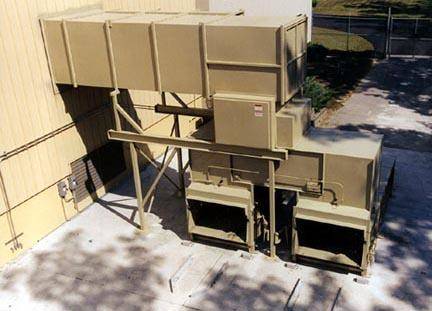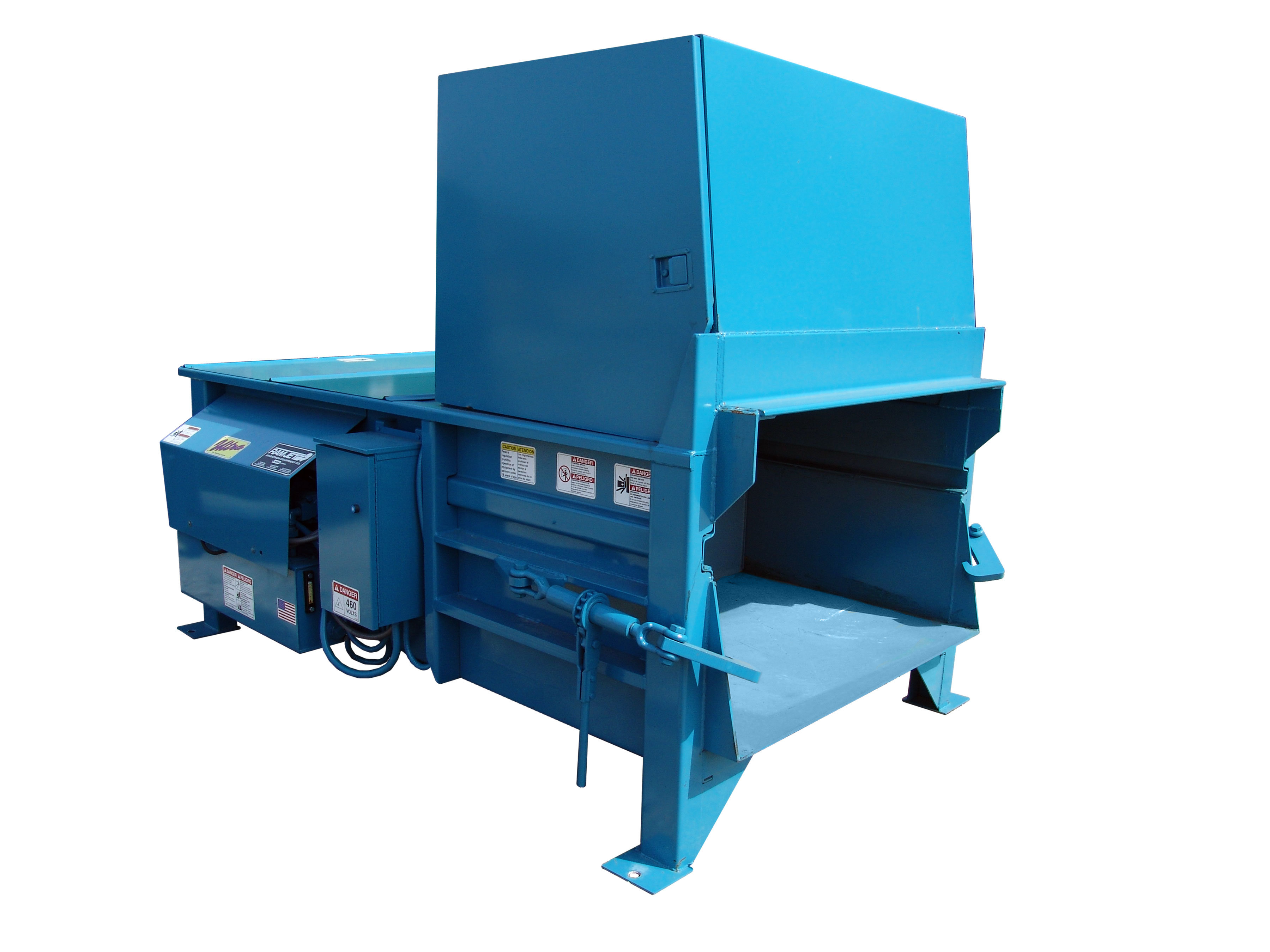Just How Waste Equipment Enhances Efficiency in Trash Compactor Workflow
Waste Equipment plays an essential function in improving the effectiveness of garbage compactor procedures. By using innovative sensing units and automation, these systems boost compaction cycles and check tons capacities successfully. This assimilation not only saves power but also minimizes pick-up frequency and connected prices. As organizations progressively take on these innovations, the effects for operational sustainability and administration methods come to be clearer. What other advantages might arise from these advancements in waste Equipment?
The Duty of Advanced Sensors in Compaction Efficiency
Advanced sensors play a necessary function in enhancing the effectiveness of trash compactors. These advanced gadgets keep an eye on numerous criteria, consisting of tons capacity, dampness levels, and compaction cycles, allowing for real-time modifications. By precisely assessing the quantity of waste, sensing units enable compactors to enhance their procedure, ensuring that power consumption is minimized while making best use of the quantity of waste refined.
Progressed sensing units contribute to predictive upkeep by determining possible concerns prior to they lead to Equipment failing. This positive strategy not only lowers downtime but also expands the life-span of the compactor. On top of that, information gathered from these sensors can be examined to enhance operational techniques, resulting in boosted waste management methods. Overall, the combination of innovative sensing units in garbage disposal substantially enhances their performance and functional efficiency, equating into expense savings and a more lasting technique to squander disposal.
Resilience and Layout: Materials That Issue
The resilience and style of garbage compactors hinge substantially on the materials made use of in their building. Premium steel is often the main option, offering stamina and resistance to tear and use. This durable product withstands the tremendous pressure exerted during compaction, ensuring longevity and reliability. Furthermore, elements such as hydraulic systems are generally crafted from corrosion-resistant alloys to avoid deterioration over time, boosting functional effectiveness.
Layout also plays a crucial role in functionality; calculated supports and ergonomic shapes can considerably impact efficiency. Manufacturers typically focus on modular layouts, enabling easier maintenance and repair services. Furthermore, improvements in layer modern technologies, such as powder covering, improve resistance to ecological factors, consisting of wetness and chemicals. Inevitably, the mindful choice of materials not only enhances the structural integrity of trash compactors yet also adds to their total efficiency and effectiveness in waste management operations.
Automation and Smart Technology in Waste Equipment

Automated compactors can maximize compaction cycles based on the quantity of waste, taking full advantage of area and enhancing operational efficiency. Assimilation with mobile applications enables users to check and control compactors from remote areas, improving ease and responsiveness. By embracing these technologies, waste monitoring business can not just boost their operational workflows however also contribute to even more sustainable practices by minimizing waste and maximizing source use. Overall, automation and clever innovation represent a substantial jump forward in the efficiency of garbage disposal operations.
Information Analytics for Enhancing Waste Management
Using information analytics provides waste monitoring business a powerful device for optimizing procedures and enhancing performance. By accumulating and evaluating information from various resources, such as compactor performance metrics and waste generation patterns, firms can acquire beneficial insights. These insights enable them to make educated choices concerning collection routines, compactor use, and upkeep needs.
Predictive analytics can anticipate waste generation fads, enabling companies to assign resources much more effectively and prevent prospective overflows or underutilizations of Equipment. check out here Real-time tracking with information analytics likewise boosts the capacity to react quickly to operational challenges, decreasing downtime and improving service reliability.
Furthermore, incorporating information analytics with existing waste management systems promotes a society of continual renovation. By tracking and identifying inefficiencies performance in time, business can improve their procedures and embrace finest techniques, inevitably bring about an extra efficient and lasting waste management approach.
Cost Savings Through Boosted Functional Performance
By simplifying procedures and lessening waste, business can achieve significant cost financial savings in their waste monitoring procedures. Improved operational efficiency in garbage compactor reduces the regularity of pick-ups, causing lower transportation prices. Additionally, progressed waste Equipment permits for maximum compaction, making the most of container ability and reducing the need for added bins.
This enhanced efficiency web link not just decreases garbage disposal charges but additionally prolongs the lifespan of Equipment, lowering upkeep costs. Automated surveillance systems supply real-time data, permitting for proactive modifications in waste handling, which can in addition improve efficiency and minimize unexpected expenses.
In addition, robust training programs for personnel on Equipment use can lead to enhanced functional techniques, even more driving down expenses. Inevitably, the integration of efficient waste Equipment cultivates a cost-efficient waste management method that profits firms financially while making sure smoother procedures.
Environmental Effect: A Lasting Approach to Waste Administration

Carrying out recycling initiatives together with compaction processes permits companies to draw away products from garbage dumps, advertising circular economic situation principles. Services that take internet on eco-friendly methods not just boost their company responsibility however additionally interest increasingly eco-conscious customers. By prioritizing sustainability in waste administration, companies can achieve a double advantage: improving operational effectiveness while actively adding to ecological preservation. This balanced approach settings services as leaders in lasting practices, fostering a healthier planet for future generations.
Often Asked Concerns
Exactly How Commonly Should Waste Equipment Be Kept for Optimal Performance?
The frequency of maintenance for waste Equipment generally depends on usage and producer suggestions - Industrial waste compaction equipment. Commonly, assessments need to take place quarterly, with comprehensive servicing yearly to ensure peak performance and avoid prospective break downs or inefficiencies
What Sorts Of Waste Can Be Refined in Garbage Compactors?
Garbage disposal can process various sorts of waste, including cardboard, paper, plastics, and non-hazardous food waste. Individuals must avoid condensing dangerous materials, steels, and liquids to assure secure and efficient operation.
Exist Security Features in Modern Garbage Compactors?
Modern garbage disposal often consist of security features such as automated shut-off devices, emergency stop switches, and sensor systems (Industrial waste compaction equipment). These improvements are made to secure users from possible hazards throughout operation, promoting a much safer working environment
How Does Waste Equipment Influence Labor Demands?
The impact of waste Equipment on labor needs is considerable; it frequently reduces the requirement for manual labor, improving and streamlining procedures productivity. Subsequently, fewer employees are needed, permitting organizations to assign sources much more successfully.
What Is the Typical Life-span of a Trash Compactor?
The ordinary lifespan of a garbage compactor typically ranges in between 10 to 15 years, depending on usage, upkeep, and environmental aspects. Normal servicing can prolong this life-span, ensuring optimal efficiency and dependability throughout its functional years.
By adopting these technologies, waste administration business can not only enhance their functional process however likewise add to even more lasting techniques by decreasing waste and maximizing source usage. By simplifying procedures and minimizing waste, firms can attain significant cost savings in their waste administration procedures. Lasting waste monitoring strategies, specifically in garbage compactor procedures, contribute significantly to reducing garbage dump waste and lowering carbon impacts. Modern waste Equipment is designed to enhance compaction, thereby reducing the volume of waste needing disposal. Trash compactors can refine different types of waste, including cardboard, paper, plastics, and non-hazardous food waste.